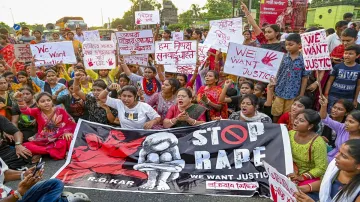Kolkata doctor rape-murder: A special court in Kolkata today (August 23) allowed the Central Bureau of Investigation (CBI) to conduct a polygraph test on Sanjay Roy, the main accused in the rape and murder of a trainee doctor at the RG Kar Medical College and Hospital.
On Thursday (August 22), the same court had approved the Central Bureau of Investigation's (CBI) plea seeking to conduct the test on the controversial former principal of RG Kar Medical College and Hospital, Sandip Ghosh, and five others in connection with the case.
What is a polygraph test?
Polygraph is basically a device or procedure that is used to measure and record several physiological factors of a person accused of the crime. The test was first used by Italian criminologist Cesare Lombroso in the 19th Century.
When subjected to the test, an accused is asked questions, based on which his or her blood pressure, pulse, respiration, and skin conductivity are monitored as these which can vary when a person gives deceptive answers.
These are monitored via cardio cuffs or sensitive electrodes that are attached to the accused to monitor blood pressure, pulse, and other variables. The procedure for getting court permission for a polygraph test is not simple. The court gives its nod in such cases only after the persons on whom the test will be conducted give their consent for the same.
Also, it is primarily a method adopted by investigating agencies to reach the truth, and its findings cannot be presented as evidence in the court of law.
How a polygraph test is done?
Before the actual polygraph begins, the accused undergoes a series of tests. It typically begins with a pre-test round where the person is asked questions by the investigating agencies that can be used as a control.
In the second round, the accused is asked to lie deliberately to further boost the accuracy of the procedure. Known as the 'stim test', it can also make the accused nervous and anxious. The test is considered passed if the physiological responses to the diagnostic questions are larger than those during the relevant questions.
What does the Indian law say about polygraph test?
Article 20 (3) of the Indian Constitution protects against self-incrimination and gives the accused the freedom to choose for the test or to reject it. No accused can be compelled to undergo the test. Importantly, forcing an accused to undergo the test is considered a violation of Article 20 (3).
How accurate is a polygraph test?
While a polygraph test can measure arousal, caused by anxiety, posttraumatic stress disorder (PTSD), nervousness, fear, confusion, hypoglycemia, psychosis, depression, or other factors, it cannot measure lies accurately.
These are not scientifically proven to be 100 per cent accurate.
Latest India News
